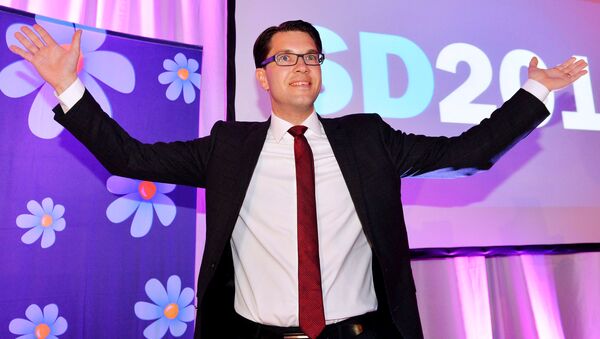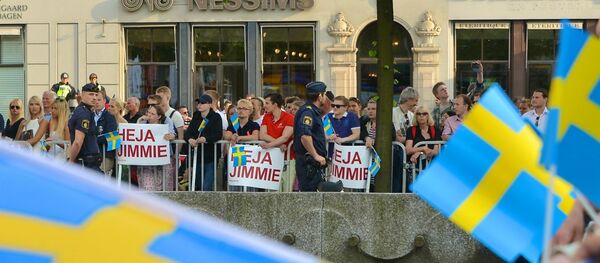"It may be that what I said came out wrong. But they are still a racist party with Nazi roots," Stefan Löfven told Swedish daily Dagens Nyheter. According to Löfven, the wording was less important when it comes to isolating the much-debated party.
Consequently, Löfven went all out against the Sweden Democrats, claiming that they had displayed swastikas during their early meetings. His tirade was interrupted by Jimmie Åkesson, who said that Löfven was lying.
Political scientist Andreas Johansson Heinö, who studied the Sweden Democrats, said the situation was difficult, as these claims could neither be backed up nor denied.
In September, a Russian-born political secretary for the Sweden Democrats was forced to resign after allegedly making several million kronor in a property deal with a St Petersburg businessman. The man, who uses his official Swedish-sounding name in parliament and the Russian pseudonym Egor Putilov on his blog, said he had been forced to step down following a "hate campaign in the media that is probably unparalleled in Swedish media history."
Jag säger upp mig hos @sdriks Anser inte att hatkampanj som medierna driver mot mig ska flytta fokus bort fr de frågor som partiet driver
— Egor Putilov (@EgorPutilov) September 24, 2016
"Because of the hate campaign carried out by the media, I have become ill, and my private life has also been affected," he told the Swedish tabloid newspaper Aftonbladet.
In September, a suggestion to invite SD to bloc-transgressing debates by Liberal Party leader Jan Björklund was severely criticized by Swedish media, who drew extraneous parallels with the rise of Nazism in 1930s.
Yougov: SD störst! https://t.co/CGwq6gl2MI via @metrosverige
— Hare Brahs (@HareBrahs) September 21, 2016
Nevertheless, public support for the Sweden Democrats seems to be rising. In the 2010 general election, the Sweden Democrats crossed the four per cent threshold necessary for parliamentary representation for the first time. In the 2014 general election, the Sweden Democrats polled 12.9 percent of votes in its largest success so far. However, support for SD has been crawling upwards, peaking at 28.8 percent, according to various polls at the beginning of the year. According to surveys, performed in September, SD was still Sweden's largest party at nearly 25 percent of the vote.





